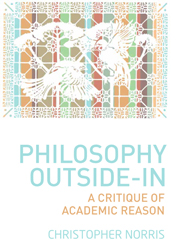Book contents
- Frontmatter
- Contents
- Dedication
- Introduction
- 1 How Not to Defeat Scepticism: Why Anti-realism Won't Do the Trick
- 2 Great Philosophy: Discovery, Invention and the Uses of Error
- 3 Under Which King, Bezonian? Experimental Philosophy versus Thought Experiment
- 4 Outside the Box: On the ‘Extended Mind’ Hypothesis
- 5 Inaesthetics and Transitory Ontology: The Case of Political Song
- 6 Speculative Realism: An Interim Report
- 7 Provoking Philosophy: Shakespeare, Johnson, Wittgenstein, Derrida
- Index
4 - Outside the Box: On the ‘Extended Mind’ Hypothesis
Published online by Cambridge University Press: 05 March 2014
- Frontmatter
- Contents
- Dedication
- Introduction
- 1 How Not to Defeat Scepticism: Why Anti-realism Won't Do the Trick
- 2 Great Philosophy: Discovery, Invention and the Uses of Error
- 3 Under Which King, Bezonian? Experimental Philosophy versus Thought Experiment
- 4 Outside the Box: On the ‘Extended Mind’ Hypothesis
- 5 Inaesthetics and Transitory Ontology: The Case of Political Song
- 6 Speculative Realism: An Interim Report
- 7 Provoking Philosophy: Shakespeare, Johnson, Wittgenstein, Derrida
- Index
Summary
I
Consider, if you will, the sheer variety of (supposedly) non-mental since extra-cranial processes and events that have gone into the making of this book. I am writing it with the aid – more than that: with what feels like the active involvement – of a computer/word-processor linked to the Internet and sometimes providing me with prompts, references, links to relevant online debates and so forth. Besides, what I write even during periods of off-line dedication to ‘the writing itself’ is inevitably shot through with a great many witting or unwitting allusions to my online reading and is also, crucially, shaped in large measure by this experience of thinking and working in tandem with a whole range of modern technologies. Indeed their influence goes far deeper than their role in merely providing us with more convenient, speedy or well-stocked and ready-to-hand informational resources. Rather it reaches into various regions of our cognitive, intellectual and even our affective lives in such a way as to induce a profound restructuring of knowledge and experience alike.
To think of those technologies as extra-mental – as standing in a merely prosthetic or supplementary relation to the human mind – must in that case be a big mistake and a product of the anthro-pocentric or human, all-human tendency to draw a categorical line between what transpires inside and outside the skull.
- Type
- Chapter
- Information
- Philosophy Outside-InA Critique of Academic Reason, pp. 124 - 149Publisher: Edinburgh University PressPrint publication year: 2013



